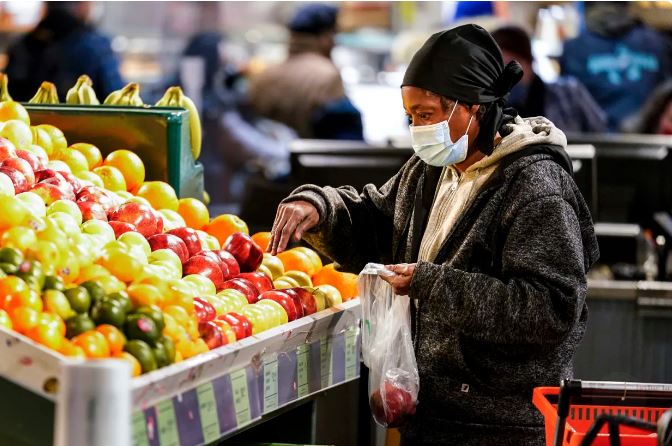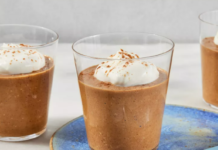U.S. officials on Tuesday announced that the federal program that helps low-income women and young children access nutritious food will permanently allot more funds for fruit, vegetables and other vital staples.
The Special Supplemental Nutrition Program for Women, Infants, and Children, commonly referred to as WIC, provides monthly grocery benefits to almost 6.6 million mothers and children up to age 5 in the U.S., including nearly 40% of all infants. The benefits are for purchasing specific foods designed to supplement participants’ diets.
Tuesday’s changes are the first update to WIC food packages in a decade, according to the U.S. Agriculture Department, which oversees the program. The changes incorporate recommendations from the National Academies of Sciences, Engineering, and Medicine, and are based on the current federal Dietary Guidelines for Americans.
“These participant-centered changes will strengthen WIC by ensuring the foods participants receive reflect the latest nutrition science to support healthy eating and the brightest futures,” Agriculture Secretary Tom Vilsack said in a statement.
The revisions finalize a rule proposed by USDA in November 2022 and make permanent an increase in monthly cash vouchers for fruits and vegetables — a boost that was first introduced during the pandemic. It provides WIC participants with up to four times the amount for fresh produce that they received before the pandemic.
WIC participants will also have more flexibility to accommodate dietary needs and cultural preferences, such as expanded whole grain options like quinoa and blue cornmeal, nondairy substitutions such as plant-based yogurts and cheeses, lactose-free milk, canned fish and canned beans, in addition to dried beans.
State WIC agencies have two years to implement all the changes, for the most part. The fruit and vegetable benefit bump, which all states are currently in compliance with, must be codified in the next 60 days; it provides monthly cash-value benefits of $26 for child participants, $47 for pregnant and postpartum participants, and $52 for mostly and fully breastfeeding participants to purchase fruit and vegetables.
Georgia Machell, interim president and CEO of the National WIC Association, praised the updated nutrition standards and urged states to implement them quickly.
“In a time of rising food insecurity and high food costs, increasing participants’ purchasing power for healthy foods is critical,” Machell said in a statement, adding that a survey released Tuesday by the National WIC Association revealed that access to fruits and vegetables is the top reason why participants join WIC.
The update includes some reductions, as well, as it lowers the allowable quantities of milk and juice for WIC participants— a move USDA said better balances diets and supports the American Academy of Pediatrics’ guidelines on limiting juice consumption.
The WIC revisions stray from some recommendations made by the National Academies of Sciences, Engineering, and Medicine: The National Academies recommends all breakfast cereals be whole grain, for example, while USDA in its final rule required only that at least 75% of cereals that WIC state agencies authorize have a whole grain as the first ingredient. The agency also chose to put a limit on added sugars versus total sugars — which includes naturally occurring sugars — for yogurt and breakfast cereal.
The food package changes come on the heels of the Biden administration securing over $7 billion to ensure that WIC is fully funded for fiscal year 2024 after the program faced a $1 billion shortfall earlier in the year.
While WIC has a decadeslong track record of success in improving health outcomes and health care disparities, just over half of all eligible people actually participate in it, according to USDA estimates.
Cindy Long, administrator of the USDA Food and Nutrition Service, said she envisioned far-reaching benefits from the new changes to WIC.
“For the 6.6 million moms, babies and young children who participate in WIC — and the millions more eligible to participate — these improvements to our food packages have the potential to make positive, life-long impacts on health and well-being,” she said in a statement.













